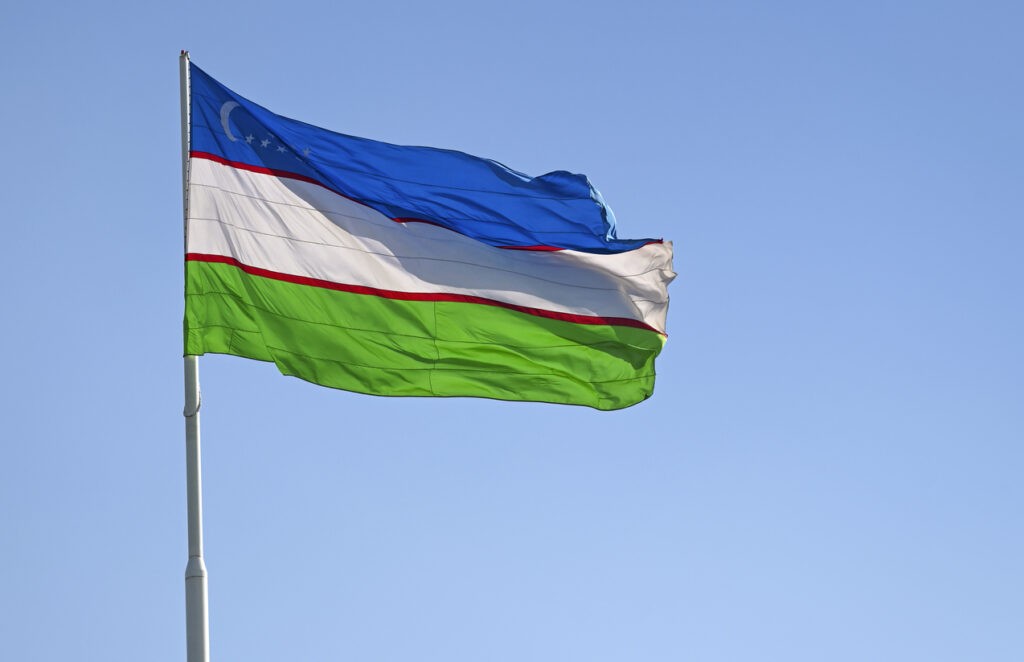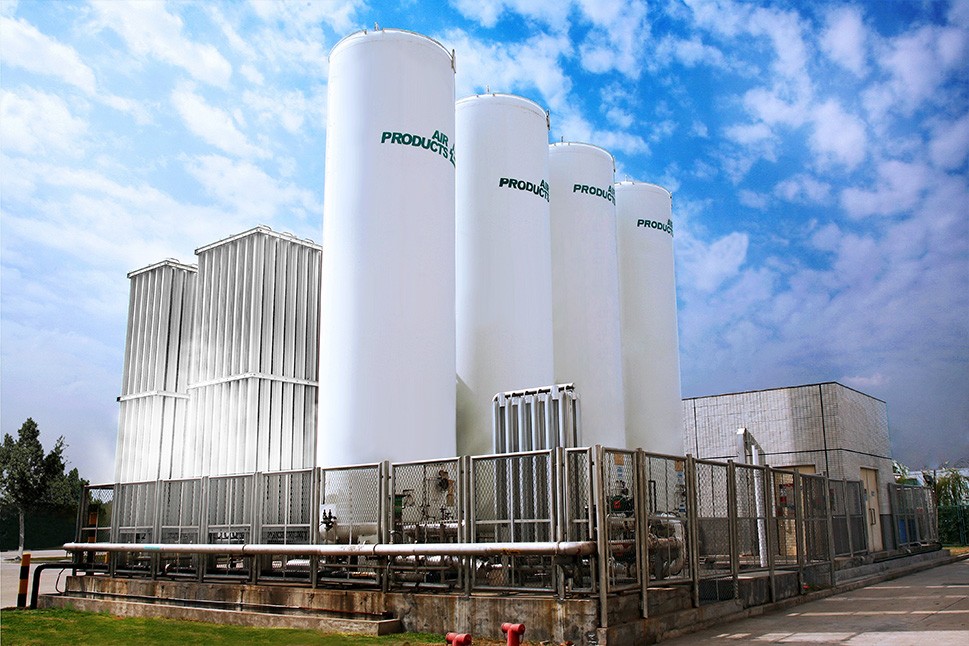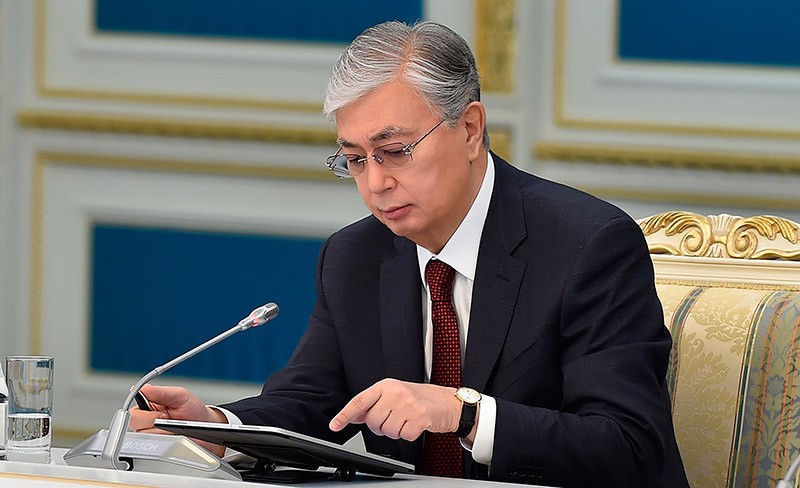British Foreign Minister David Cameron’s grand tour of Central Asia last month was an attempt to remind those of us in Central Asia about investment and sanctions, Kazakhstani economist Aidarkhan Kusainov has told The Times of Central Asia.
Over several days in late April, Cameron visited the five countries of Central Asia, demonstrating the UK’s intentions to participate in developing economic ties with the region. The visit was closely monitored by the international media, which said Britain’s main motive was to reiterate its interests.
In the countries chosen by the head of the UK Foreign Office for the tour, the interest in his visit was not so acute. Cameron himself assured them that he was not going to force the leaders to choose between Russia and China on the one hand and the West on the other. However, experts believe that the geopolitical component was still present, as the war in Ukraine has sharply increased attention to the region — and not only on the part of British leadership.
“We are not saying to Kazakhstan or any other country that you have to make a choice, or that we are asking you not to choose to partner and trade with Russia or with China or with anyone else. We are here because we believe that you should be able to choose to partner with us in a way that reflects positively on both our common security and our common prosperity,” Cameron said before meeting with Kazakh Foreign Minister Murat Nurtleu. The British Foreign Secretary made a similar statement during his visit to Kyrgyzstan.
Following a trip to Kazakhstan, where Cameron also met with President Kasym-Jomart Tokayev, it was stated that economic cooperation between the two countries has great prospects. In addition, it’s worth noting that bilateral trade turnover between Britain and Kazakhstan exceeds the total bilateral turnover of all other countries in the region.
Furthermore, Cameron commented on British mining companies’ interest in Kazakhstan. “I think we can still do a lot more in the sphere of small business. We talked about how to remove bureaucracy and barriers for small- and medium-sized businesses to settle and work here. And I think in all areas, whether it’s education, whether it’s the economy, whether it’s energy, whether it’s climate change, there’s a whole range of things that we can do in partnership. And I want that to happen next year, in the coming years,” he said.
For his part, Kazakh Foreign Minister Murat Nurtleu noted the special role of the UK in Air Astana’s recent IPO and the creation of the Astana International Financial Center. “Given the recently adopted in London roadmap on fossil minerals, we considered the possibility of implementing advanced projects in the field of important raw materials, development of the Trans-Caspian International Transport Corridor and green energy. We agreed to work together to overcome global challenges, including the fight against climate change, environmental protection and effective management of water resources. We reaffirmed our interest in expanding trade and investment ties with London,” Nurtleu explained.
As for the visit to Tashkent, Cameron and Uzbek Foreign Minister Bakhtiyor Saidov signed a memorandum of understanding on regional and international ties and infrastructure, as well as a joint declaration on comprehensive cooperation — including joining forces to combat terrorism, climate change and expanding human rights.
Officials in Bishkek noted that Cameron believes it’s necessary to support environmental projects in the context of climate change. In this regard, Britain will create an investment fund to support small- and medium-sized businesses. Britain is also cooperating with Kyrgyzstan on private investment and even building sports facilities. Statements from Turkmenistan and Tajikistan were less informative, and concerned “prospects for bilateral cooperation, including in the political, trade and economic, investment, energy and transportation spheres.”
In addition to geopolitics, in Kazakhstan Cameron could discuss the Kashagan problem. Bloomberg recently reported that the amount of international arbitration claims by Astana against the international consortium of oil companies developing the Kashagan field exceeded $150 billion. The consortium includes the British-domiciled integrated oil & gas producer Shell.
As part of the growing interest of Western diplomacy in Central Asia, in September 2023, the heads of state of the region met with U.S. President Joe Biden within the framework of a six-party conversation. The leaders also met in Berlin with German Chancellor Olaf Scholz, and in November, French President Emmanuel Macron visited Kazakhstan and Uzbekistan.
Before Cameron’s tour, Britain’s Foreign Office announced a commitment to provide £50 million ($62 million) in aid to Central Asia, which “could help Britain increase its soft power and influence in the region.” As analysts note, these funds don’t amount to too much for a big country with energy and metals wealth like Kazakhstan.
According Kusainov, no revolutionary statements were made during Cameron’s visit. Kusainov, besides his work as an economist, is a former adviser to the chairman of the National Bank of Kazakhstan, and author of the book, Kazakhstan’s Economy: Myths and Reality. New Economic Policy. Information Space. National Idea.
“It is clear that the UK is trying, at the very least, not to lose influence in Central Asia, and at the most, to expand it. This is an important element of today’s geopolitics, as the region is sandwiched between China and Russia, as some believe. There is interest from Britain’s side; Biden has also held meetings. On the part of Kazakhstan and Uzbekistan, it is this: as long as it does not interfere with anything and does not get involved in any conflicts, why not? From this point of view, general agreements were signed, as I suspect, not binding on anything,” Kusainov told TCA.
Regarding the expected tranches of aid to the region, he noted that “to promise does not mean to marry. Why not add to what has already been invested?” he said.
“I do not think that Cameron’s visit was specifically timed to the problems at Kashagan, but these issues are on the agenda anyway — Kashagan, CPC [Caspian Pipeline Consortium], TCO [Tengizchevroil]. In general, the visit shows that there is influence, there are joint projects, investments in the countries. However, I do not consider the visit as a landmark. No decisive documents were signed, no loud statements were made. Perhaps there were behind-the-scenes agreements, but in general the tour was undertaken [as a reminder of] the influence, about large investments, and in between to threaten sanctions. To say that we want to cooperate, to which the Central Asian countries responded: ‘do we care?’,” concluded the economist.








